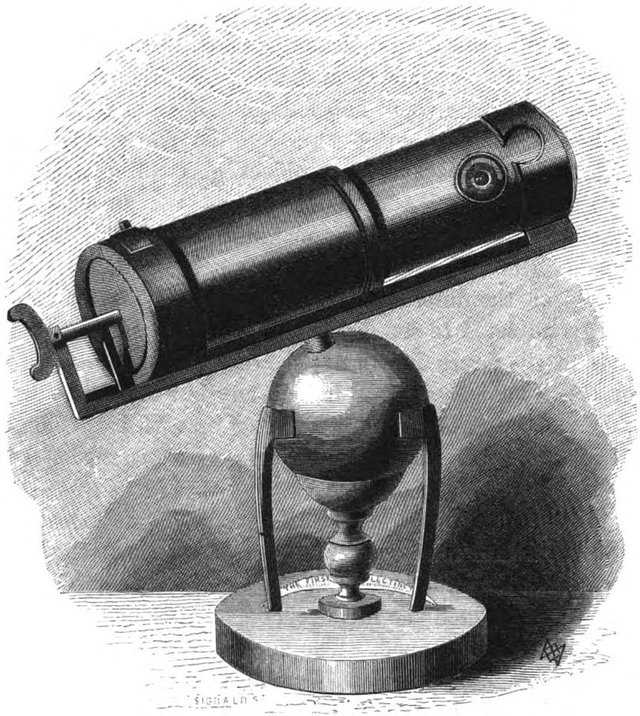
Newton's reflector, the first reflecting telescope
The history of science is the study of the development of science and scientific knowledge, including both the natural and social sciences. (The history of the arts and humanities is termed history of scholarship.) Science is a body of empirical, theoretical, and practical knowledge about the natural world, produced by scientists who emphasize the observation, explanation, and prediction of real world phenomena. Historiography of science, in contrast, studies the methods employed by historians of science.
The English word scientist is relatively recent—first coined by William Whewell in the 19th century.[1] Previously, investigators of nature called themselves "natural philosophers". While empirical investigations of the natural world have been described since classical antiquity (for example by Thales and Aristotle), and scientific method has been employed since the Middle Ages (for example, by Ibn al-Haytham and Roger Bacon), modern science began to develop in the early modern period, and in particular in the scientific revolution of 16th- and 17th-century Europe.[2] Traditionally, historians of science have defined science sufficiently broadly to include those earlier inquiries.[3]
From the 18th century through late 20th century, the history of science, especially of the physical and biological sciences, was often presented as a progressive accumulation of knowledge, in which true theories replaced false beliefs.[4] Some more recent historical interpretations, such as those of Thomas Kuhn, tend to portray the history of science in terms of competing paradigms or conceptual systems in a wider matrix of intellectual, cultural, economic and political trends. These interpretations, however, have met with opposition for they also portray history of science as an incoherent system of incommensurable paradigms, not leading to any scientific progress, but only to the illusion of progress.
Source
Plagiarism is the copying & pasting of others work without giving credit to the original author or artist. Plagiarized posts are considered spam.
Spam is discouraged by the community, and may result in action from the cheetah bot.
More information and tips on sharing content.
If you believe this comment is in error, please contact us in #disputes on Discord
Downvoting a post can decrease pending rewards and make it less visible. Common reasons:
Submit
Congratulations @avikant! You have completed the following achievement on Steemit and have been rewarded with new badge(s) :
Click on the badge to view your Board of Honor.
If you no longer want to receive notifications, reply to this comment with the word
STOPTo support your work, I also upvoted your post!
Do not miss the last post from @steemitboard:
SteemitBoard World Cup Contest - Round of 16 - Day 4
Participate in the SteemitBoard World Cup Contest!
Collect World Cup badges and win free SBD
Support the Gold Sponsors of the contest: @good-karma and @lukestokes
Downvoting a post can decrease pending rewards and make it less visible. Common reasons:
Submit
Hi! I am a robot. I just upvoted you! I found similar content that readers might be interested in:
https://play.google.com/store/apps/details?id=com.historyisfun.historyofscience&hl=en_US
Downvoting a post can decrease pending rewards and make it less visible. Common reasons:
Submit